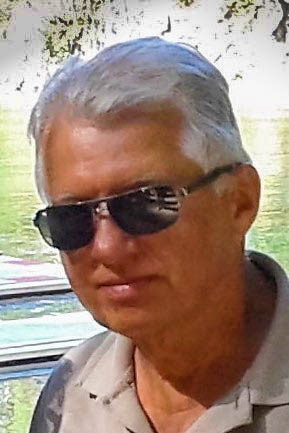Interview conducted by Jennifer D. Foster
A career as an editor is often a solo adventure, especially if you’re a freelancer. So we thought one way to better connect with fellow editors was to ask them the W5: who, what, where, when, and why. Read on for some thought-provoking, enlightening tidbits from those of us who choose to work with words to earn our keep.

Wilf, please tell us a little about yourself, the kind of work you do (where you live), and how long you’ve been an editor.
I edit and write technical material, mainly in law and engineering, disciplines I believe central to our civilization: law fosters its political accord while engineering creates its physical structure. I enjoy having a small role in both camps.
My wife, a non-fiction writer, and I live in Saskatoon, a prairie city with decent libraries and insufferable winters.
I’ve always been an editor or at least since the last glacier retreated. Volunteering for my university weekly hooked me, and I spent 35 years at two daily newspapers, the Edmonton Journal and the Saskatoon StarPhoenix. Eventually, I no longer edited copy but supervised a newsroom. But at all levels one is still an editor.
When newspapers began to atrophy and no longer needed me I set up a freelance company. And I’m still editing after more than 55 years.
Who: If you could edit one famous author, living or dead, who would it be?
I am in awe of famous authors, but for me reading them can be upsetting. I frequently pause and say, “I could never write anything so brilliant.”
Therefore I would be reluctant to touch the MS [manuscript] of any famous author. Only a brave and confident editor could change something Orwell, Waugh or Atwood wrote. A seemingly unnecessary word may have an artful purpose.
What: Do you have a favourite punctuation mark and/or a favourite word?
The semicolon has the versatility of a knight in chess and can solve many problems. It lurks between the comma and the stop, paying homage to neither and announcing to the reader, “I’m fulfilling a special function here, so pay attention.”
Where: If you could work anywhere in the world as an editor, where would that be?
Ireland, where writers and editors get the same respect as hockey players enjoy here.
When: Was there ever a time in your life when you seriously questioned your career choice?
No! I was raised by parents who were amateur wordsmiths: I felt inspired and obligated to make my life with words. I cannot imagine doing anything else.
Why: Why did you choose to become an editor? Or, should we ask: Why did editing choose you?
I believe most people while growing up are unaware of the existence of editors, even if they are devoted readers, as I was. Editing is a hidden side of the world of letters. We first choose to be writers and once involved in the craft we discover there are also editors.
Even at this stage, we may be reluctant to become editors. What’s the fun in that? People choose to be actors, not directors; football players, not coaches; lawyers, not judges; teachers, not principals. There is nothing about editing that is romantic or heroic to attract a young person.
Then we are abducted. And after brief protests, we discover that it’s really an interesting occupation, provided we have the necessary skills.
And, of course, we just had to ask the inevitable how: How would you sum up your motto?
My motto: protect the integrity of the English language. It may sound pompous but it comes from my favourite poet, W.H. Auden. In an interview with The Paris Review 45 years ago he was asked, “I wondered which living writer you would say has served as the prime protector of the integrity of our English tongue.”
Auden replied: “Why, me, of course!”
Auden is no longer with us. The barbarians are at the gates. It’s up to editors to defend the English language.
Jennifer D. Foster is a Toronto-based freelance editor and writer, specializing in book and custom publishing, magazines, and marketing and communications. She is also chair of Editors Toronto and administrative director of the Rowers Reading Series.
This article was copy edited by Ambrose Li.
